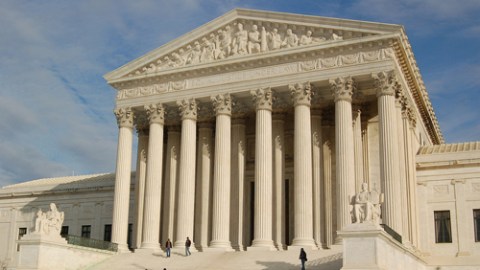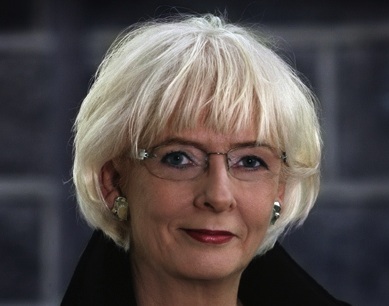Harvard’s Laurence Tribe: Kagan Performance “Masterful in Every Respect”

Legal scholar Laurence Tribe told Big Think today that he found Elena Kagan’s performance in her Supreme Court confirmation hearings to be “masterful in every respect.” Kagan, who was previously the dean of Harvard Law School (where she worked with Tribe), ended her testimony before the Senate yesterday after two long days of questioning. Both Democrats and Republicans agree that she is likely to be confirmed.
“She demonstrated not only an encyclopedic knowledge and understanding of the law and an impressive feel for the proper role of a Supreme Court Justice but also a remarkable capacity to express even obscure legal concepts in plain English without condescension or oversimplification, and to parry tough questions with grace and good humor,” added Tribe, who was recently named Senior Counselor for Access to Justice, a Department of Justice initiative to increase legal access for the poor. “No one in my memory has navigated the confirmation process with as much skill, and my memory of these hearings goes back all the way to the 1970s. She ducked exactly when she should have ducked and had the wisdom not to exploit softballs when doing so could have backfired,” he said.
Kagan was not as forthcoming as one might expect, given her 1995 article bemoaning the “air of vacuity and farce” of past confirmation hearings, but that is to be expected, explained Tribe: “She was as forthcoming as any nominee could properly be—which, of course, isn’t terribly forthcoming. But anything more, I’d stress, would’ve been problematic not only in political terms but as a matter of principle, given the demands of judicial independence and the requirement that a judge maintain as open a mind as one can reasonably expect.”
While Kagan didn’t divulge her thoughts on crucial issues like executive power, abortion, or the rights of corporations, she did make some things clear. Importantly, she revealed her belief that the Constitution is a living document, one which does not change but which must be applied differently to new situations. Justices Scalia and Thomas, conversely, tend to follow the notion of “original intent.” In his Big Think interview in 2008, NYU law professor Kenji Yoshino discussed at length these two approaches to constitutional law. Federal Judge Richard Posner, however, told Big Think that a purely strict interpretation of the Constitution is essentially impossible.
Kagan also promised to take a “modest” approach as judge. Her time in other branches of government, she said, has taught her that “the court must also recognize the limits on itself and respect the choices made by the American people.” These remarks came amidst repeated arguments from the Democrats that the court has moved decisively to the right under John Roberts, something which Tribe argued in his Big Think interview several years ago. Republican rhetoric in recent years has characterized liberal judges as having “activist” agendas, but Democrats pushed back against this notion, claiming that conservative justices like Roberts and Alito are the true activists. The Supreme Court’s decision in this year’s Citizens United case reversed decades of legal precedent regarding corporate funding for political campaigns.
The New York Times endorsed Kagan today as well, saying that “she could act as an important brake on the current Supreme Court’s alarming tendency to bulldoze through decades of settled precedents.” But they expressed some pause over her lack of a stated judicial philosophy and over whether her responses reflected true beliefs or merely performance.





